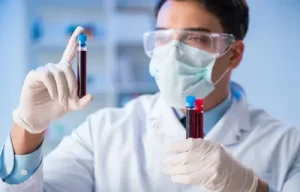In the complex field of oncology, obtaining an accurate diagnosis is essential for effective treatment and patient outcomes. However, misdiagnoses remain a significant concern, potentially leading to inappropriate treatments and adverse consequences. Seeking a second opinion can be a crucial step in ensuring diagnostic precision and optimal care for cancer patients.
Prevalence of Misdiagnosis in Oncology
Studies have highlighted significant misdiagnosis rates in oncology:
- Cancer Misdiagnosis Rates: Research indicates that approximately 15% to 28% of cancer diagnoses are incorrect or incomplete, with common misdiagnosed cancers including breast, prostate, lung, colorectal, and skin cancers.
- Second Opinion Discrepancies: A systematic review found that seeking a second opinion resulted in a changed diagnosis or treatment plan in 2% to 51% of cases.
Implications of Misdiagnosis
A misdiagnosis in oncology can lead to severe consequences:
- Inappropriate Treatment: Patients may undergo unnecessary or harmful therapies based on incorrect diagnoses.
- Delayed Correct Diagnosis: A misdiagnosis can postpone the identification of the actual condition, allowing cancer to progress untreated.
- Increased Healthcare Costs: Unnecessary treatments and prolonged medical care contribute to higher expenses and emotional distress for patients.
The Role of Second Opinions in Oncology
Seeking a second opinion can help mitigate the risks associated with misdiagnosis. Consulting experienced, board-certified oncology specialists offers several advantages:
- Diagnostic Accuracy: Expert pathologists and oncologists can review biopsy slides, imaging results, and genetic tests to ensure the correct diagnosis.
- Exploration of Treatment Options: A second opinion may uncover alternative treatments, such as immunotherapy, targeted therapy, or clinical trials.
- Enhanced Patient Confidence: Patients who seek second opinions are often more confident in their diagnosis and treatment decisions.
A study from the Mayo Clinic found that only 12% of patients retained their initial diagnosis after obtaining a second opinion, demonstrating the impact of expert review on cancer care.
DocOrbit: Facilitating Accurate Diagnoses in Oncology
DocOrbit is committed to improving diagnostic accuracy in oncology through:
- A Global Network of Oncology Specialists: Connecting patients with top, board-certified oncologists worldwide.
- AI-Enhanced Medical Assistant, OrbitMD: Utilizing artificial intelligence to support diagnostic processes and provide evidence-based insights.
- Access to Advanced Medical AI Applications: Offering tools to assist in analyzing complex medical data, leading to more accurate cancer diagnoses.
In conclusion, the high rates of cancer misdiagnosis emphasize the need for second opinions. DocOrbit provides a platform that combines expert human insight with advanced AI technology, ensuring that patients receive precise diagnoses and appropriate treatment plans.





